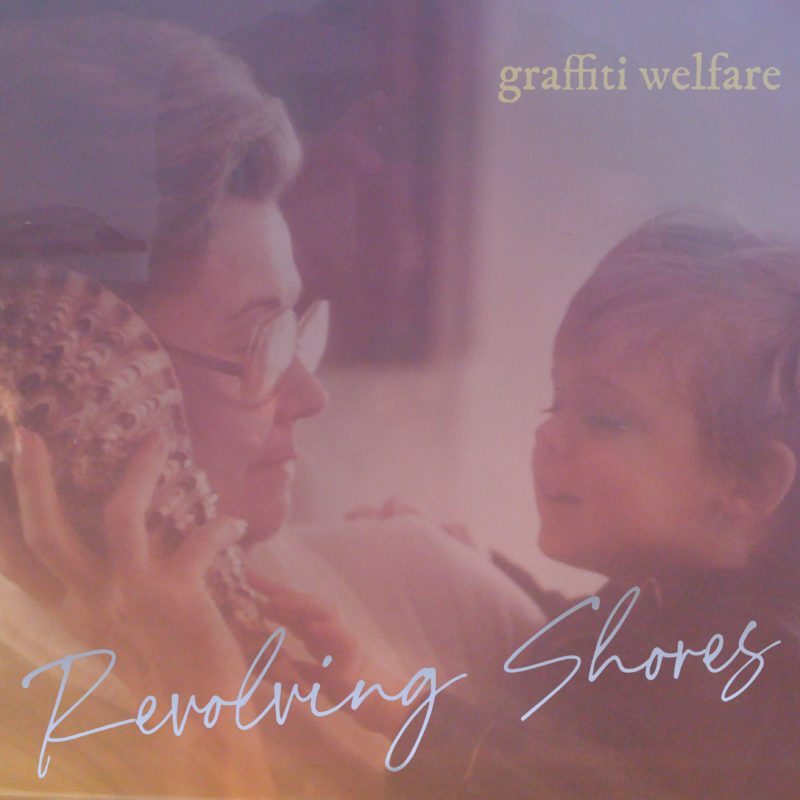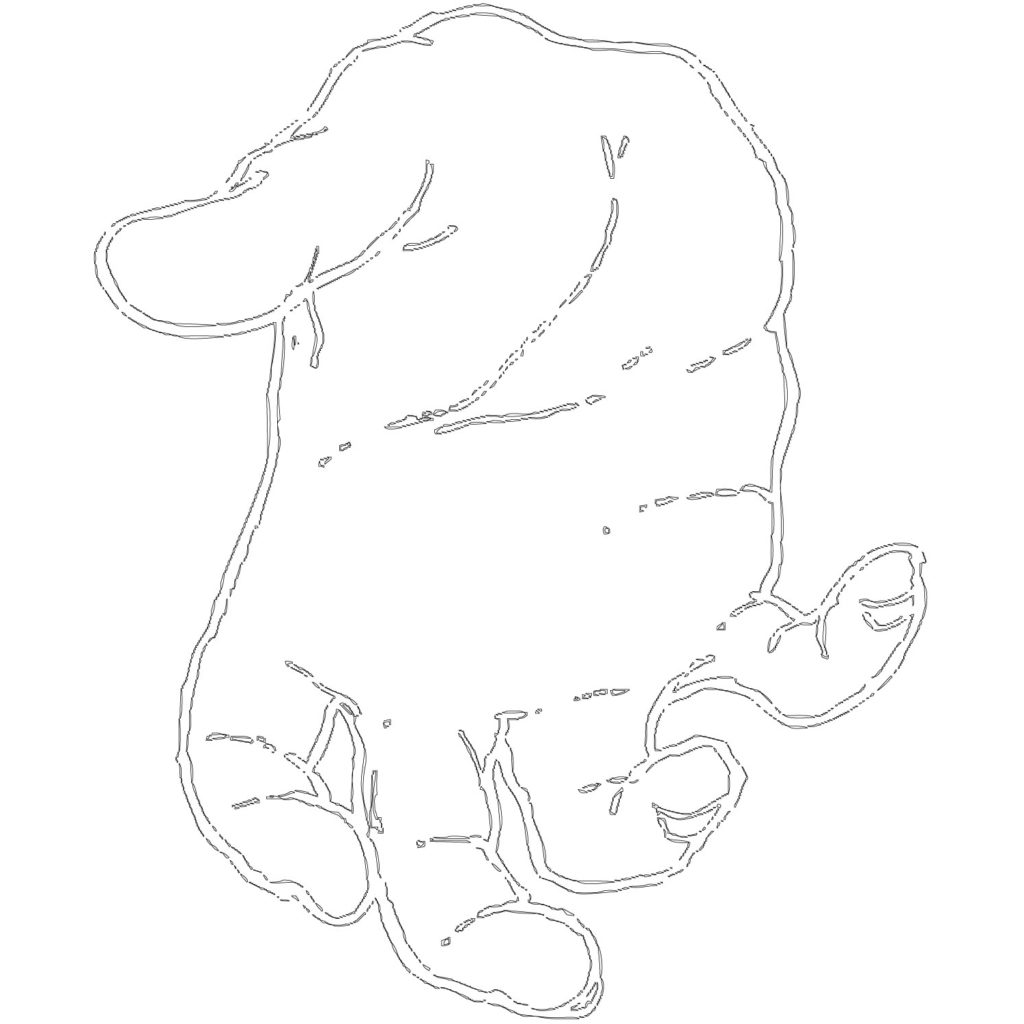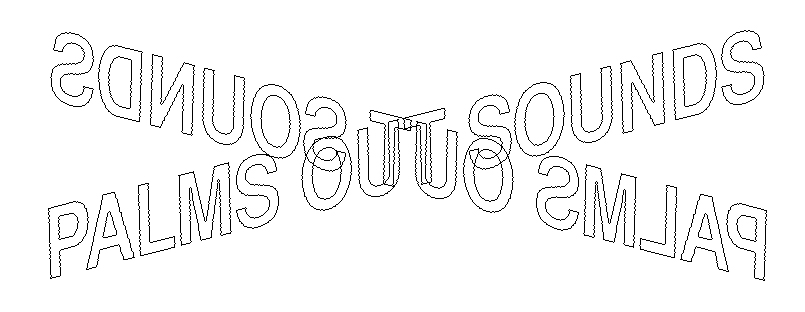
As she stares into her laces, a bee buzzes and hums in her ear
is that a tune she remembers? or is it one she should?
Grampa used to ask her what she expected from music
whether she thought it would fulfill her
now as she waits for her ride, she wonders
if the color is enough to keep her going
whether things will change for the better or
if the volume will continue to dim.
Graffiti Warfare is the nom de guerre of Denver’s George Lattimore. Revolving Shores is his second album under that name. It’s an outright embrace of nostalgia, but broader in emotional scope than the work of some of his contemporaries. Nostalgia indeed, but not just for stoned teenage angst and romance, also for sharp-eyed grandparents, kite flying, and plastic cutlery.
From the opening song, “To Be It,” which features spoken word recordings by mid-twentieth century perennialist, Alan Watts, the album feels like it must have been a really personal process for Lattimore. I was quick to want to characterize the record as intimate and wooly, and at many moments, it is that. It’s certainly interpretive; some of its references feel like they must be Lattimore’s alone, or akin to the kinds of inside jokes siblings keep–almost indecipherable, but nonetheless totally charming to outsiders. It’s a largely instrumental album, only making sparse use of vocals on most songs, with greater focus on synthesis, pillowy drums, and pedal work. But where some of Lattimore’s nostalgia-seeking colleagues may opt to dive headfirst into fuzz, tape warble, and binaural synth washes, most of Revolving Shores maintains a sense of earnest clearheadedness, at times even bordering on the piercing.
What might seem at first like a weedy and cozy lay in grass (see early standouts like “Just Follow” or “DejaBlue“) pretty quickly turns into more of a healthy not-quite-micro-dose on a brisk autumn beach. There’s plenty of flirting with melancholia, but also an apparent attempt to tackle concrete family anxieties, grief, and insomnia. I’ll admit I’m usually more of a weedy lay in the grass type, but the album is probably strongest when it embraces the colder and more frenetic — the collage slap bass of “Volume” or the stop/start-synthesized-shrill meets soft underbelly of the album’s closers “Missing the War” and “Seashell.”
Revolving Shores is Lattimore’s own personal moment on a cold bright day in wet sand, but most listeners will find themselves feeling welcome to join him.
The album is out now for streaming on all major outlets.
Graffiti Warfare – “Just Follow” (sc)
Graffiti Warfare – “Volume” (sc)
Graffiti Warfare – “Seashell” (sc)

